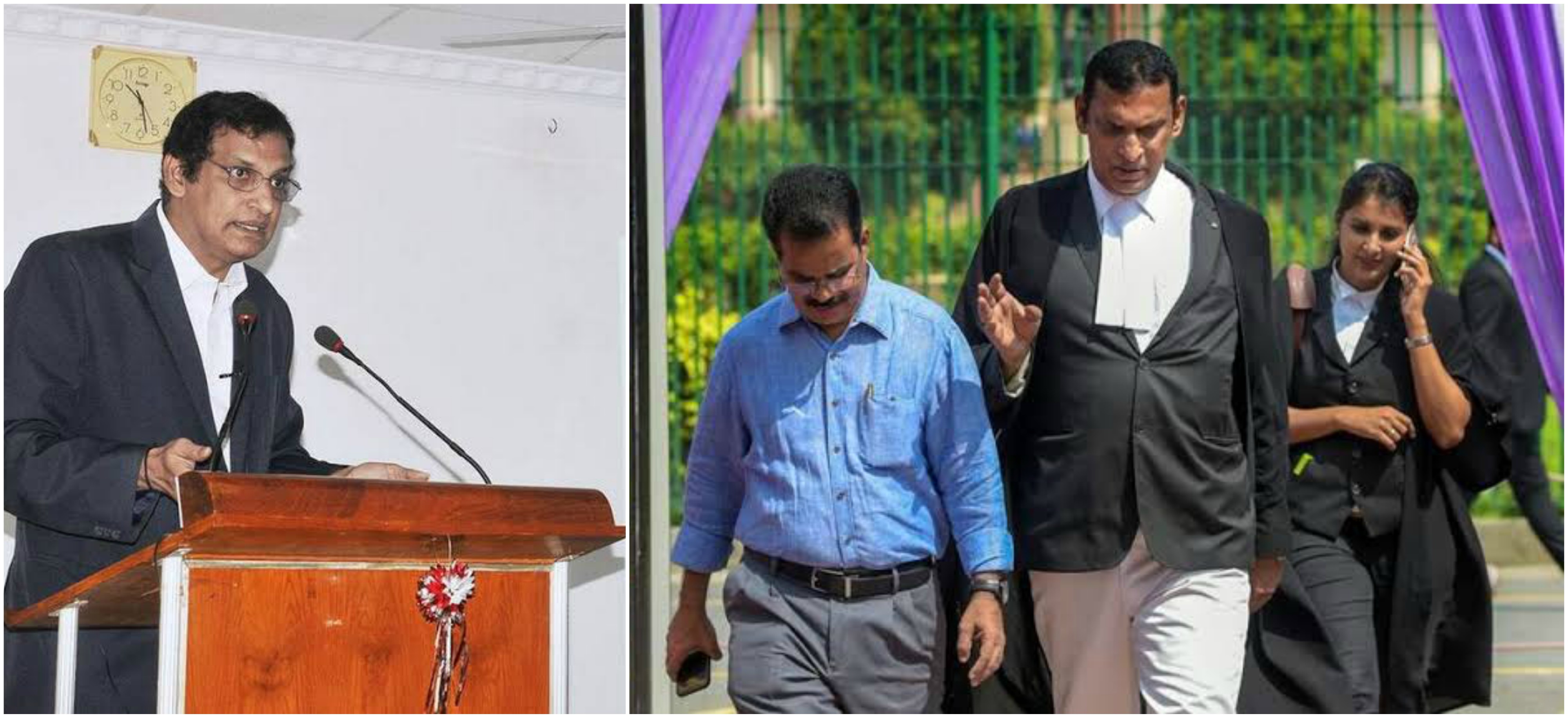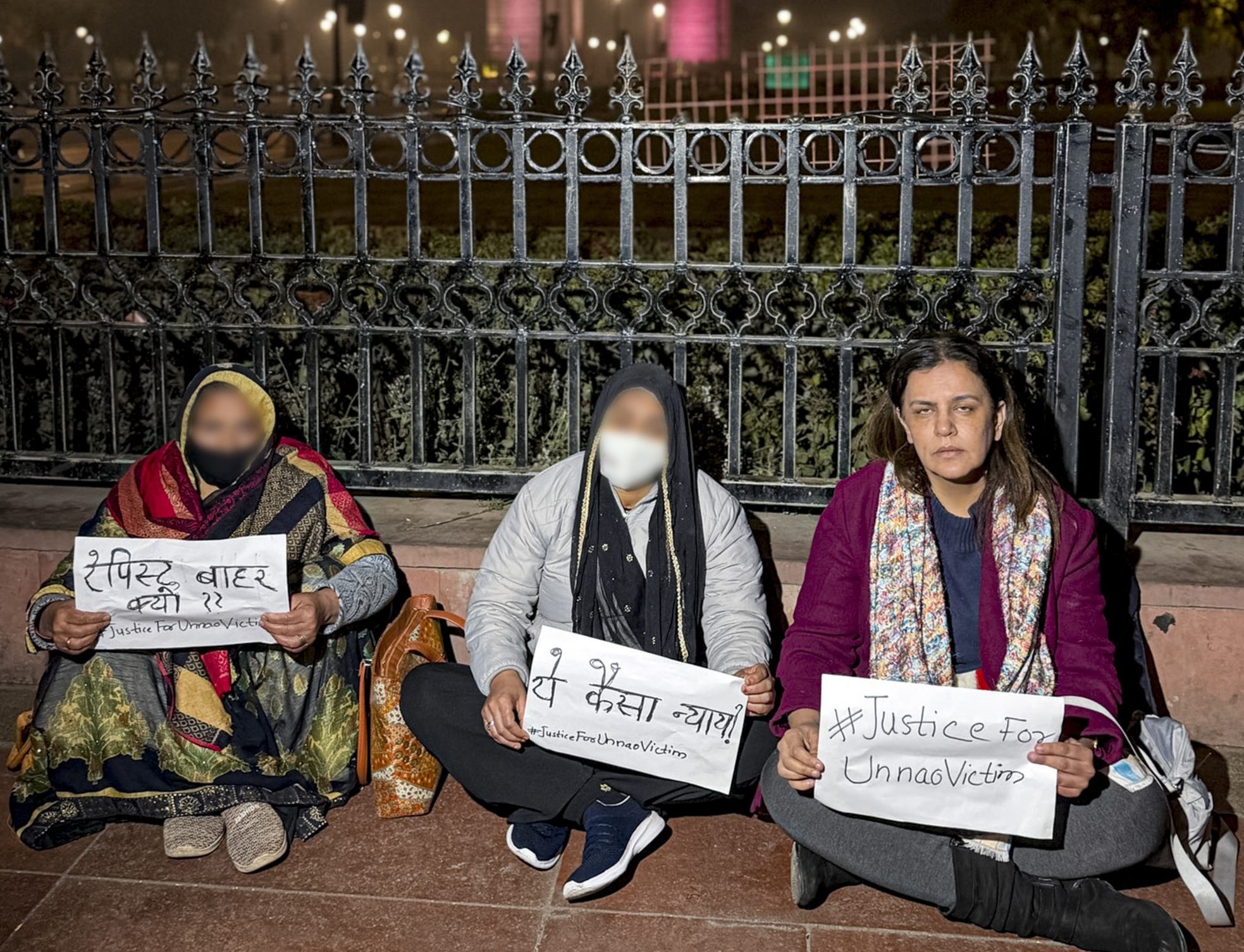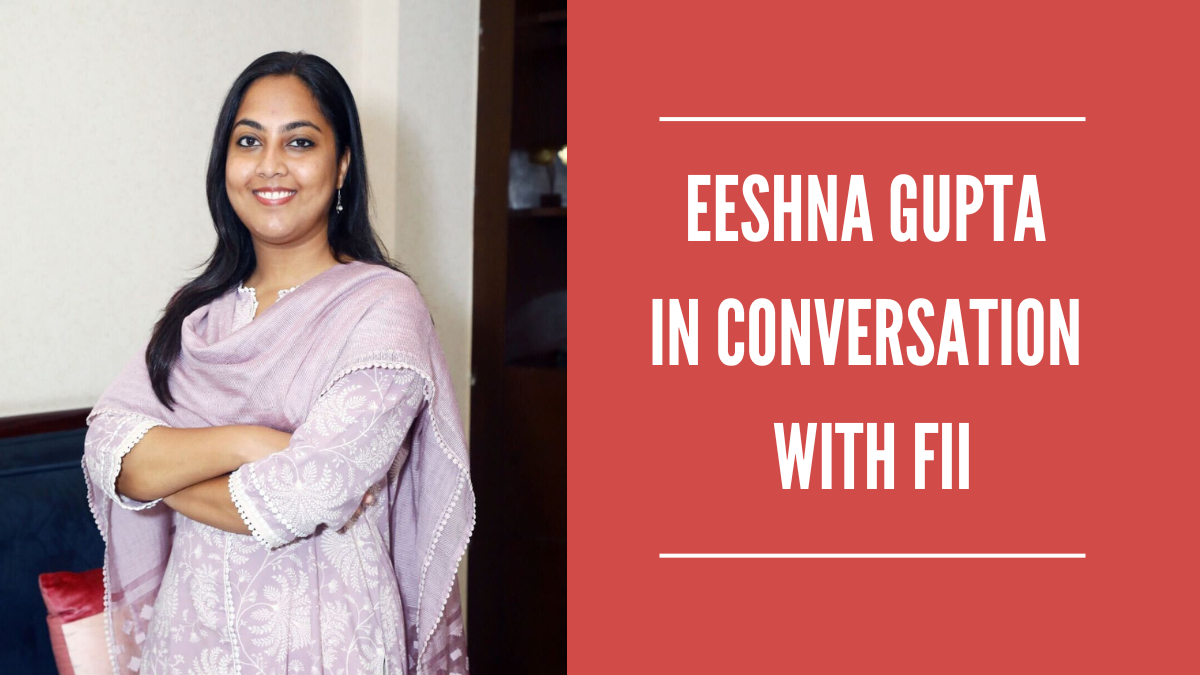Kaleeswaram Raj is a lawyer in the Supreme Court of India and the High Court of Kerala. He successfully fought to decriminalise adultery in India and he appeared in several other important cases before the Supreme Court, including the Kerala liquor policy case, the National Highway liquor ban case, the government advertisements case, the Interstate Motor Vehicle Tax case.
In this exclusive interview, he talks to Ujjawal Krishnam about the issues pertinent to women’s rights in India.
“Feminism in India”– how do you see this?
Kaleeswaram Raj: Feminism in India is ambitious, if you take it as a people’s movement. Because of poverty, illiteracy, social inequality based on caste system, gender equality remains a distant goal. This, in fact, shows its peculiar relevance. The point is to connect the question of gender-based injustice to the broader issues relating to socio-political inequality and areas like civil liberty, environmental protection etc. Indian feminism is yet to transcend the urban boardrooms and television studios. No doubt, women’s issues are also specific in their own way. But, its nexus with socio economic causes and political factors is to be clearly identified and understood. The predicament of a woman confronted with resource depletion, unemployment, communal violence, war, discrimination etc. needs to be politically addressed. Thus, feminism in India needs a progressive political praxis. It needs to emphasise on woman’s control over resources – natural, ideological, educational, socio-political and economic. It really needs to be a mass movement based on an egalitarian notion of man-woman relationship. It also needs to take the shape of a peace movement.
The predicament of a woman confronted with resource depletion, unemployment, communal violence, war, discrimination etc. needs to be politically addressed. Thus, feminism in India needs a progressive political praxis.
So, India needs another wave of feminism?
Kaleeswaram Raj: Definitely. I would, however, dream about it in terms of my answer to your previous question!
Why do campaigns like #MeToo come episodically?
Kaleeswaram Raj: #MeToo campaigns raised serious issues. But, rather than an organic agitation, it remained narrow in its content and sterile in its activities. It was largely media dependent. It was not forming part of a structured feminist political movement in the country. It therefore failed to ensure the people’s involvement, i.e., women’s involvement at large. It happened in an extremely narrow ideological premise. It could not go beyond the media’s rating strategies.
Do you think #MeToo campaign was a feminist movement?
Kaleeswaram Raj: Yes. But only to a limited extent. It had its limitations.
You wrote in column that “State has no business seeking to control an individual’s expression”. This may sound misnomer when the person in question is a 7-year-old girl who is secretly taken out of the home so that FGM could be performed on her. Masooma Ranalvi, who has been on forefront of the movement to seek a ban on this practice, once told me that “it is done to curb sexual feelings of a woman.” Thus, in a broad scenario, practices like FGM and terms like adultery aim to please patriarchs. There is still no special law to stop FGM or witch-hunting. Your comment, please.
Kaleeswaram Raj: I said about the state’s intrusion into individual’s expression while dealing with criminalisation of adultery, based on pure moral norms of the society or even of the State. Every moral wrong cannot be a criminal offence. Criminalisation should be principled and legitimate. Adultery is bad. But its criminalisation is worse. Triple Talaq is bad. It’s criminalisation, however, is worse. Rather than individual wrongs, the issue of criminality also involves state-citizen relation. Unless a legitimate and compelling state interest is shown, individual’s autonomy cannot be meddled with. This is especially so in the post – Puttaswamy era. Legislations can have motives. The conventional idea to the contrary is wrong. Triple Talaq Legislation is a classic case where, in the guise of protection of women’s interest, a communal agenda of the majoritarian regime is fulfilled by blatantly discriminating women based on religion and also by institutionalising and even encouraging desertion without divorce.
Legislations can have motives. The conventional idea to the contrary is wrong. Triple Talaq Legislation is a classic case where, in the guise of protection of women’s interest, a communal agenda of the majoritarian regime is fulfilled by blatantly discriminating women based on religion and also by institutionalising and even encouraging desertion without divorce.
The enactment only deters formal pronouncement of triple talaq, not desertion. Imprisonment of the erring husbands can also lead to denial of maintenance. Ban on FGM as indicated in your question, involves a legitimate State interest which criminalisation of adultery cannot claim. Judgment of the apex court in Joseph Shine (2018) would illustrate this distinction. Patriarchal norms were assimilated in the very definition of adultery as it stood before Joseph Shine. Special enactment to deal with FGM and witch hunting would be a welcome step.
Are you satisfied with the report of the in-house probe panel which cleared CJI Gogoi in sexual harassment case?
Kaleeswaram Raj: Not at all. The in-house probe was neither participative nor representative. The procedure was not transparent. When the allegation is against the Chief Justice, a conventional device was inadequate. The in-house mechanism was all the more ill-equipped- structurally, functionally and substantively. The in-house procedure is empirically proved to be ineffective even in other cases of allegations against the judges. In the case of the CJI episode, the committee consisted of judges alone. There was no access to the findings. There was no legal representation for the victim. Nor was there an open and formally prescribed procedure. The court acted as imperium in imperio. It showed clear lawlessness. It negated procedural justice and in turn, substantive justice. An unprecedented situation needed an unconventional solution. A secret probe by a committee consisting of colleagues of the Chief Justice of India was thoroughly inappropriate. We could have adopted more credible options from other jurisdictions.
In the U.S., allegations were raised against Brett Kavanaugh, who was nominated as an Associate Judge of the Supreme Court. Those were pertaining to his alleged sexual misbehaviour allegedly occurred in 1982 when he was a High School student. Still, there was a probe by an independent agency, the proceedings of which are now in public domain. Kavanaugh’s nomination was confirmed and the challenge was rejected. It is the procedural fairness that formally legitimised his confirmation as an associate judge of the U.S. Supreme Court. In another episode, the elevation of Clarence Thomas as judge of the U.S Supreme Court also was questioned based an allegation of sexual harassment. There was an open senate hearing. The complaint was dismissed. These instances of exoneration are more or less acceptable to the whole world because of the fairness and openness in the process of probe. This was lacking in the Indian case. In my view, a Parliamentary Committee, with added representatives of the judiciary including the Bar ought to have probed into the allegations. Till its conclusion, the CJI ought to have kept away from his work till he is cleared of the charges.
What should be the structure of the ICC looking into complaints of sexual harassment/misconduct/assault in Indian workplaces? Do you suggest any amendment in The Sexual Harassment of Women at Workplace (Prevention, Prohibition and Redressal) Act, 2013? (There have been cases where organizations received informal complaints, but committees could not proceed further as victim hesitated to give a formal complaint. How this major obstacle can be obviated?).
In my view, an offence against women at workplace or elsewhere is equally serious. A special enactment in the realm of penal laws should rest on sound rationale. I fail to understand how harassment in work place is qualitatively different from that faced by a woman from home or from a public place. The Indian problem is that we could not develop an effective socio-legal framework based on deep-rooted awareness about woman’s rights. Given this general deficit, it is too much to expect more from a special statute. We need to strengthen the conventional mechanisms by effectuating the investigative and prosecutorial mechanism and democratising such institutions.
Also read: Let’s Talk About The Sexist And Archaic Indian Adultery Law
What reforms do India’s major religions need to enhance gender equality?
Kaleeswaram Raj: This is a significant question. The movements from within the religions is fundamental. For example, Raja Ram Mohan Roy’s efforts have taken Hinduism forward in several respects. But education and literacy are conditions precedent for religious reform. This is an Indian problem. We need to evolve a liberation theology and its necessity is much more among the Muslims who are the victims of patriarchy and orthodoxy together with their socio-economic backwardness, as revealed in Justice Rajindar Sachar Committee Report. Christianity in India is slightly better though the property rights continue to be uneven, even after the seminal verdict in Mary Roy’s case (1986).
The current regime’s nationalist narrative is majoritarian, communal, State centred and authoritarian. It is in contrast with the universalist nationalism propounded by Rabindranath Tagore and the like.
Do you believe that the rise of nationalism as well as purity is legitimising gender inequality?
Kaleeswaram Raj: Not at all. The current regime’s nationalist narrative is majoritarian, communal, State centred and authoritarian. It is in contrast with the universalist nationalism propounded by Rabindranath Tagore and the like.
Feminism, researchers like Sujata Patel argue, has successfully questioned patriarchy both theoretically and in everyday practices. Prof. Patel recently told me that, “it was feminist theory that opened family-marriage-kinship; caste and religion (mainly Hinduism) for interrogation given that these for interrogation as they made empirical studies on the way these institutions and their ideologies both discriminated and legitimised in the private and public domains of work and public patriarchal power. It was not Ghurye who formulated this perspective.”
However, the misogynists still exist. Your comments, please.
Kaleeswaram Raj: What Dr.Ambedkar lamented about democracy is true with feminism in India as well. It is only a topsoil in this country, which is essentially patriarchal. It needs constant introspection, corrective measures and reformative strategies to improve the situation at individual and societal level. Even in certain advanced democracies, women suffrage was achieved only in recent history.
Also read: Why The Adultery Law Verdict Shows Promise For A More Gender-Sensitive Legal System
Last year, Maneka Gandhi, the then Minister for Women and Child Welfare, proposed to set up a committee with senior judicial and legal persons as members to investigate all issues emanating from #MeToo campaign. Moreover, nothing has been materialised yet. Ministry neither responded to my mails, nor to my RTI query. Do you think that there should be central as well as state level committees to assess the Minutes of Meeting of ICC?
Kaleeswaram Raj: I am not an optimist with the 2013 statute or the ICC. In my view, as suggested earlier, what is needed is general systemic and institutional reform. Law Commission should take it seriously, which unfortunately is defunct now. Ideas and programmes should be called for from independent researchers as well. It seems that a regime that focuses only on headline management and electoral populism is not capable of bringing in radical reformation in the realm of gender justice in a country that is not salvaged from illiteracy. When an aggrandising State tries to do away even with tenets like secularism and socialism, feminism faces challenges which are both unprecedented as well as conventional. We need to evolve a feminist mass movement based on the country’s constitution, which is essentially feminist, socialist and humanist. There is no way to constitutionalism. Constitutionalism is the way. Perhaps, the only way.
Ujjawal Krishnam reports social inequality and human rights abuses and conducts research in theoretical physics related to condensed matter. You can find him on Facebook and Instagram.




